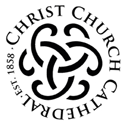Finding Freedom in a Concentration Camp
~Fr. Michael
In 1939, just as World War II was beginning to rage throughout Europe, the young German theologian, Dietrich Bonhoeffer, was in New York, exploring whether he should stay there. He had offers to be a pastor to the German emigrants fleeing Europe. He had made himself deeply unpopular with the German regime, making radio broadcasts critical of Hitler and running a secret society for clergy in Germany who could not accept the way that the Nazi state was controlling the Church.
After what he describes as draining struggle, he decided to go back to Germany. He left knowing that he was returning to a situation of extreme danger. Six years later, he was dead, executed for treason in a concentration camp. We know all this because he wrote letters to family and friends from the camp, which have become one of the greatest set of theological reflections of the twentieth century. He had left behind the chance of freedom as most of us would understand it and re-immersed himself into a complex and risky world, getting involved in the plot to assassinate Hitler, living as a double agent, daily facing the prospect of arrest, torture and death.
But freedom was one of the things he most often wrote about. In a poem he wrote in July 1944, he sketched out what he thought was involved in real freedom – discipline, action, suffering and death. Not quite what we usually mean when we talk about freedom. These reflections take us into the heart of what it is for someone to be lastingly free.
The freedom he is interested in is the freedom to do what you know you have to do. The society we live in gives us all sorts of messages about what we should be doing, and our own longings and preferences push us in various directions. If you have the discipline to test your passions and preferences, and come to an understanding of yourself, it can give you the courage to act. When you act, you take risks. You become less free, in our normal understanding of the word, because you are bound by the consequences of you action. But what is really happening is that you are handing over your freedom to God and saying, ‘I’ve done what I had to; now it’s over to you.’ Freedom, he says, is ‘perfected in glory’ when it’s handed over to God. And this finds its climax in the moment of death, when we step forward to discover what has been hidden all along – the eternal freedom of God, underlying everything we have thought and done.
At the end of Bonhoeffer’s journey, as he writes about his inevitable execution, is a vision of the joy that can only come when you discover that you are at last in tune with reality, God’s reality. Everything else, the stories you tell yourself, the pictures of yourself that you enjoy thinking about, the efforts to make yourself acceptable – all this falls short of reality. ‘The truth will make you free’, says Jesus; and that is what sustains Bonhoeffer in prison, where he learns the true nature of freedom. It reflects Jesus own promise in the Beatitudes, ‘Blessed are the poor, those who are hungry for justice, those who make peace’; these are the people who have got in touch with what eternally matters, with God’s reality. These are the free people, because they have been liberated from all the fictions, great and small, that keep us locked into our anxieties and ambitions. These are people who are not afraid to die because they have discovered what supremely matters and are willing to hand over everything to God.
Some religious people talk about letting of our minds settle so that it can truly reflect God, like a still pool. As Bonhoeffer’s life and death make clear, this is not some sort of refusal of the world; it is rather the only way we can ever act in the world so as to change it, because we open the way to God’s action, through us, but not just through us. Looking quietly at all the clutter that prevents us from seeing ourselves honestly, looking quietly at the ways in which the world we live in muffles the truth and so frustrates the search for justice and love – this isn’t a luxury. This is how the truth makes us free. Not free to whatever we want, but free to be real, to be truthful, to abide in the truth, as John's Gospel puts it. After all, what other sort of freedom is finally worth having? It may cost us everything we thought we needed to hang on to; but – as the history of Christ’s journey to the cross and the resurrection makes clear – the end of the story is a fulfillment, a homecoming, for which we can never find adequate words. It’s the freedom to be what we most deeply are.

